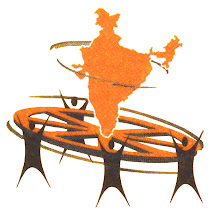By Tom O'Neill
Get the whole story in the pages of National Geographic magazine
Discrimination against India's lowest Hindu castes is technically illegal. But try telling that to the 160 million Untouchables, who face violent reprisals if they forget their place. |
Get a taste of what awaits you in print from this compelling excerpt. The sins of Girdharilal Maurya are many, his attackers insisted. He has bad karma. Why else would he, like his ancestors, be born an Untouchable, if not to pay for his past lives? Look, he is a leatherworker, and Hindu law says that working with animal skins makes him unclean, someone to avoid and revile. And his unseemly prosperity is a sin. Who does this Untouchable think he is, buying a small plot of land outside the village? Then he dared speak up, to the police and other authorities, demanding to use the new village well. He got what Untouchables deserve. One night, while Maurya was away in a nearby city, eight men from the higher Rajput caste came to his farm. They broke his fences, stole his tractor, beat his wife and daughter, and burned down his house. The message was clear: Stay at the bottom where you belong. * * * * * * To be born a Hindu in India is to enter the caste system, one of the world's longest surviving forms of social stratification. Embedded in Indian culture for the past 1,500 years, the caste system follows a basic precept: All men are created unequal. The ranks in Hindu society come from a legend in which the main groupings, or varnas, emerge from a primordial being. From the mouth come the Brahmans—the priests and teachers. From the arms come the Kshatriyas—the rulers and soldiers. From the thighs come the Vaisyas—merchants and traders. From the feet come the Sudras—laborers. Each varna in turn contains hundreds of hereditary castes and subcastes with their own pecking orders. A fifth group describes the people who are achuta, or untouchable. The primordial being does not claim them. Untouchables are outcasts—people considered too impure, too polluted, to rank as worthy beings. Prejudice defines their lives, particularly in the rural areas, where nearly three-quarters of India's people live. Untouchables are shunned, insulted, banned from temples and higher caste homes, made to eat and drink from separate utensils in public places, and, in extreme but not uncommon cases, are raped, burned, lynched, and gunned down. |





No comments:
Post a Comment